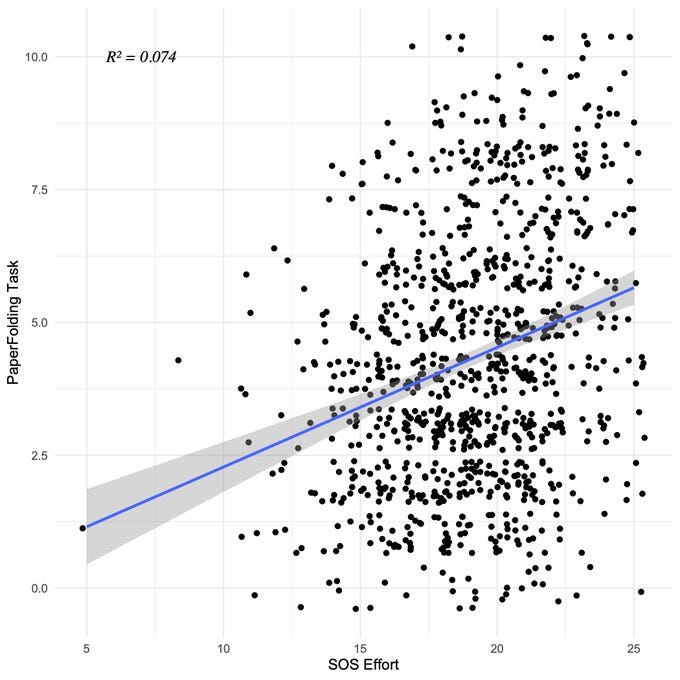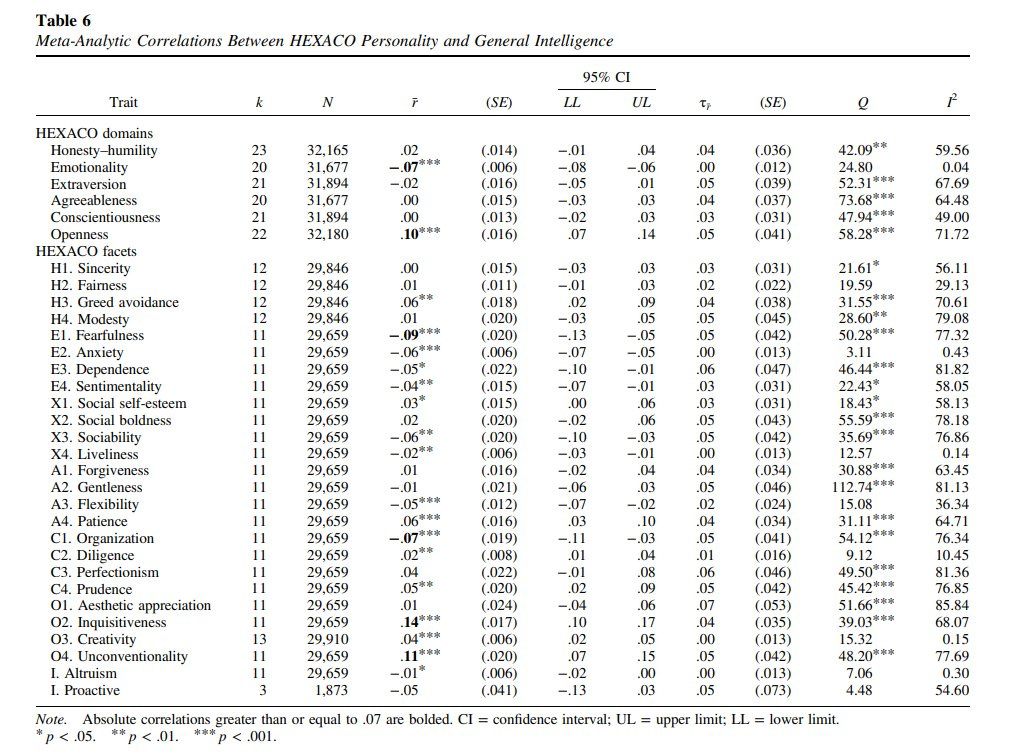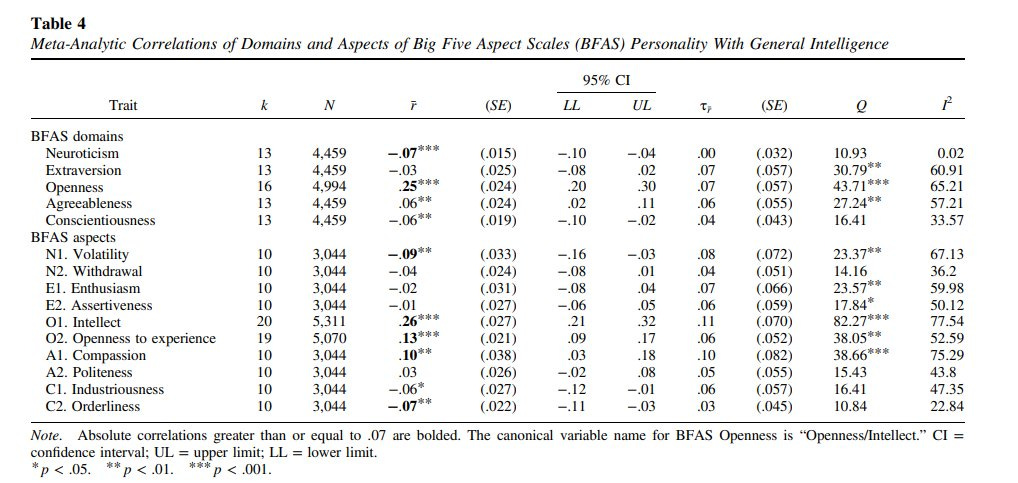Theory: IQ causes low conscientiousness
(Disclaimer: there is only a 30-60% chance this is actually true)
From the outset, there is a clear problem with this theory: the correlation between IQ and conscientiousness is practically 0.
With an aside - the correlation is higher for industriousness/competence related constructs, and lower for orderliness.
Educational attainment correlates between spouses (r = .66, the meta-analysis that has a downwards bias due to measurement error) and GPA does as well (r = .43 in Norway). This should cause a positive genetic correlation between intelligence and conscientiousness, as:
Conscientiousness correlates with educational attainment: this is generally accepted as true, but the magnitude of the correlation is difficult to estimate. Conscientiousness and grades correlate at about .22 to .29 using self-reports, but correlate at .69 when peer-reports are used instead.
IQ correlates with GPA: after controlling for artefacts and only using full scale batteries, the correlation is 0.60. For whatever reason, the authors remove datasets with more than 10000 individuals (??????), and post the results from that reduced dataset in the abstract.
IQ correlates with educational attainment: r = .56 in Strenze’s meta-analysis.
The correlation between conscientiousness and education is only about 0.096, but would probably be larger with more reliable measurements.
Beyond that, there is also the issue of test-taking specific abilities confounding IQ test results. In practice, monetary incentives have little effect on the average scores of participants (~2 IQ points), and self-reported effort only correlates at 0.28 with IQ score.

My guess is that about half of the correlation is causal, and that the other half is due to intelligence being associated with need-for-cognition, which results in higher levels of effort. That aside, there is also no guarantee that test effort and conscientiousness correlate that highly, as the former will be influenced by random factors like mood or sleep. Because of this, I don’t think this should be inflating the observed correlation between IQ and conscientiousness very much.
II.
Theoretically, people will vary in their tendency to set ambitious goals. Those who are more intelligent will be able to accomplish those goals more easily. However, if they don’t adjust their goal setting accordingly, they will build less character than those who have to struggle more to accomplish their goals. It is difficult to quantitatively test this theory, but here are some findings that would be consistent with this theory:
The correlation between IQ and conscientiousness would be highest in young children and the elderly; lowest in the youth and middle-aged.
Controlling for shared genes should cause the correlation between IQ and conscientiousness to decrease.
+++++++++++++++++
Edit:
Somebody on twitter thought that the slightly negative correlation is due to a collider bias. I don’t think the results are consistent with this - the correlation between conscientiousness and IQ is lower at ages with less representative sampling (18-59), but that would also be consistent with the causality theory (believe it or not, I wrote the article before I saw this table).
And it’s also not consistent with the rank order of the correlations within conscientiousness - IQ has the strongest negative correlation with orderliness, while the correlations with the other subfactors tends to vary. If collider bias was an issue, then it would be expected that the most negative correlation would be with self-discipline or competence, not orderliness.










